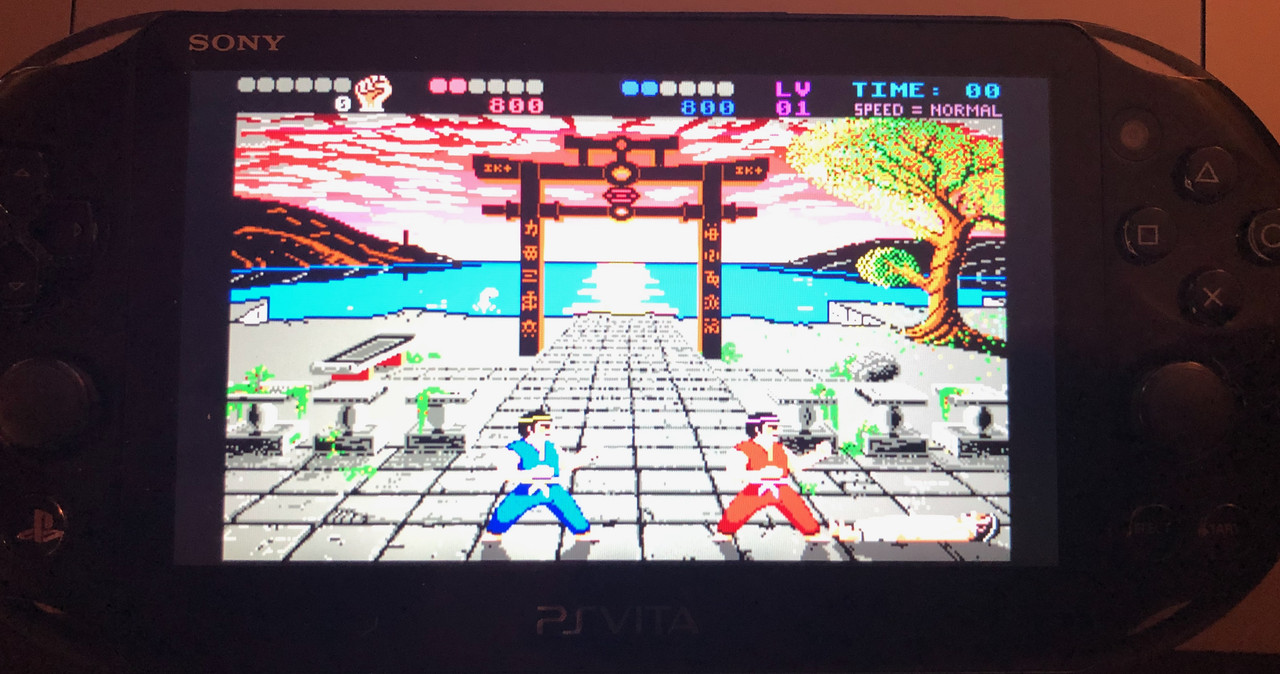
- #Ps vita retroarch sega cd bios download how to
- #Ps vita retroarch sega cd bios download full
- #Ps vita retroarch sega cd bios download software
- #Ps vita retroarch sega cd bios download Pc
- #Ps vita retroarch sega cd bios download ps3
Here, aside from the “presets” folder, you’ll find three categories of shaders – cg, glsl and slang. You can smooth out edges using various degrees of antialiasing, give a border to your game, or try to recreate the authentic experience of playing on a 90s screen by adding a little bit of noise or scanlines to the image. Shaders are visual filters that let you add all kinds of crazy stuff over your in-game graphics.

Set it to “memory only” for the least visual glitches.
#Ps vita retroarch sega cd bios download software
#Ps vita retroarch sega cd bios download full
Some games may work without a BIOS, but for full compatibility we highly recommend one.

If you’ve followed up to to this point, your controller is ready to use, and you’ve acquired the PS1 bios file(s) that you’ll need to play your games. You can check the default directory that Retroarch scans for BIOS files under “Settings -> Directory -> System/BIOS”. What we can tell you is that the most common bios files are:

#Ps vita retroarch sega cd bios download Pc
A modern Windows PC for best performance (and the most accurate guide) though RetroArch is cross-platform enough for this guide to work on other platforms.If using a non-Xbox pad, make sure you have an XInput driver/wrapper enabled.
#Ps vita retroarch sega cd bios download ps3
I recommend a PS3 pad for that authentic control experience or an Xbox One pad for better support.

#Ps vita retroarch sega cd bios download how to
This is the case for leading RetroArch PS1 core, Beetle PSX, which we’ll be teaching you how to install and use in this article.Īlso read: How to Set Up RetroArch, The Open-Source Cross-Platform Retro Game Emulator PS1 BIOS, Gamepad, and Other Things You Needįor optimal RetroArch PS1 emulation, you’ll want the following: Some emulators, however, are actually made just for RetroArch, and because of this they may even be better than modern standalone emulators on the scene. RetroArch’s emulators, called “cores,” are generally ported emulators from other developers in the scene. Emulating games on PC usually means a full emulator and different program per platform, but RetroArch can actually emulate quite a large number of systems, all within a single program. RetroArch isn’t an emulator in and of itself – think of it as a hub for emulators and media accessible under a single, unified interface. Also read: 28 of the Best Online Games to Play With Friends Meet RetroArch


 0 kommentar(er)
0 kommentar(er)
